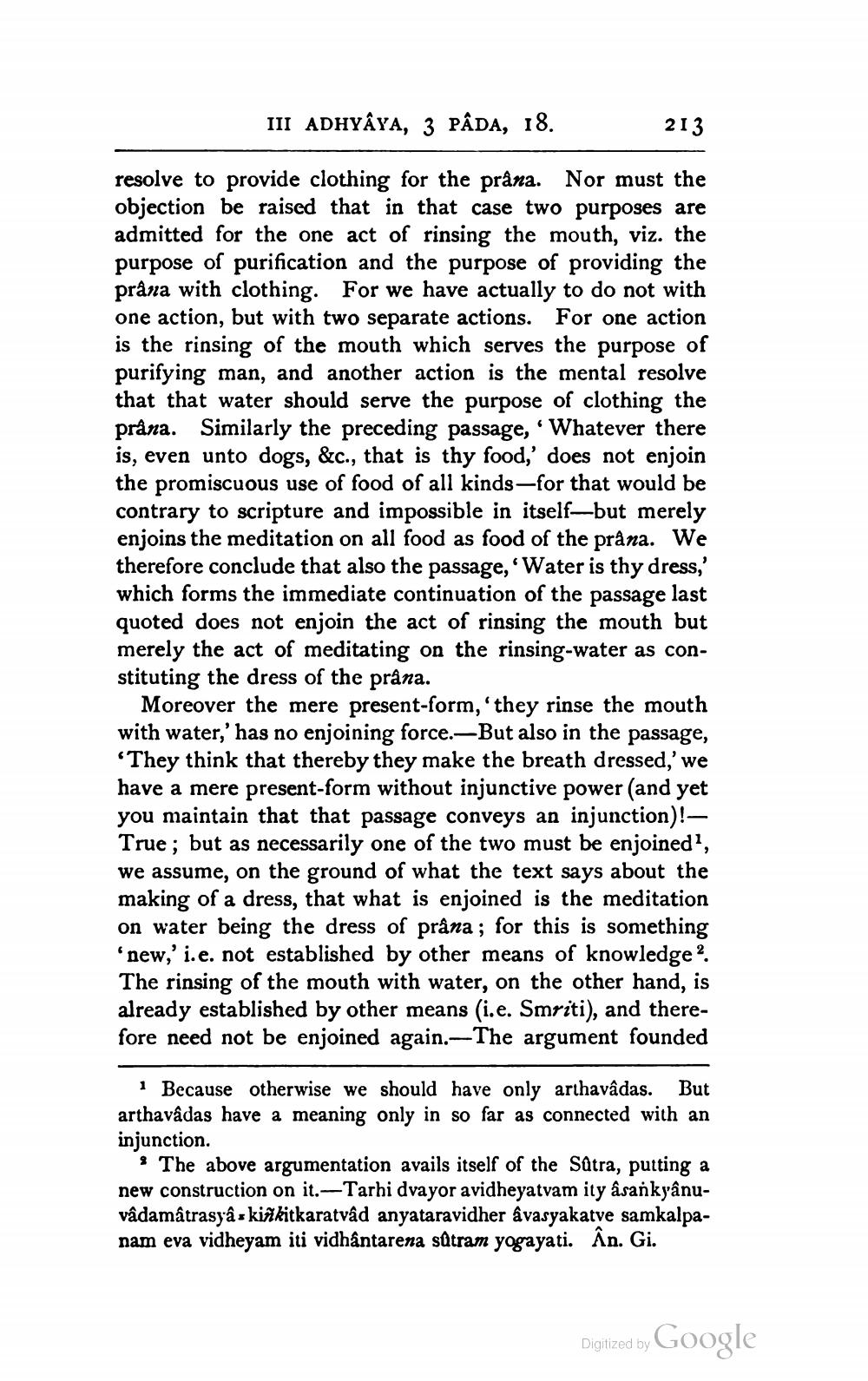________________
III ADHYAYA, 3 PÂDA, 18.
213
resolve to provide clothing for the prâna. Nor must the objection be raised that in that case two purposes are admitted for the one act of rinsing the mouth, viz. the purpose of purification and the purpose of providing the prana with clothing. For we have actually to do not with one action, but with two separate actions. For one action is the rinsing of the mouth which serves the purpose of purifying man, and another action is the mental resolve that that water should serve the purpose of clothing the prana. Similarly the preceding passage, Whatever there is, even unto dogs, &c., that is thy food,' does not enjoin the promiscuous use of food of all kinds —for that would be contrary to scripture and impossible in itself—but merely enjoins the meditation on all food as food of the prâna. We therefore conclude that also the passage, 'Water is thy dress,' which forms the immediate continuation of the passage last quoted does not enjoin the act of rinsing the mouth but merely the act of meditating on the rinsing-water as constituting the dress of the prâna.
Moreover the mere present-form, they rinse the mouth with water,' has no enjoining force.-But also in the passage, “They think that thereby they make the breath dressed,' we have a mere present-form without injunctive power (and yet you maintain that that passage conveys an injunction)!True; but as necessarily one of the two must be enjoined", we assume, on the ground of what the text says about the making of a dress, that what is enjoined is the meditation on water being the dress of prâna; for this is something 'new,' i.e. not established by other means of knowledge ? The rinsing of the mouth with water, on the other hand, is already established by other means (i.e. Smriti), and therefore need not be enjoined again.-The argument founded
1 Because otherwise we should have only arthavâdas. But arthavadas have a meaning only in so far as connected with an injunction
9 The above argumentation avails itself of the Sätra, putting a new construction on it.-Tarhi dvayor avidheyatvam ity âsankyânuvâdamâtrasyâs kinkitkaratvâd anyataravidher avasyakatve samkalpanam eva vidheyam iti vidhântarena sūtram yogayati. Ân. Gi.
Digized by Google




